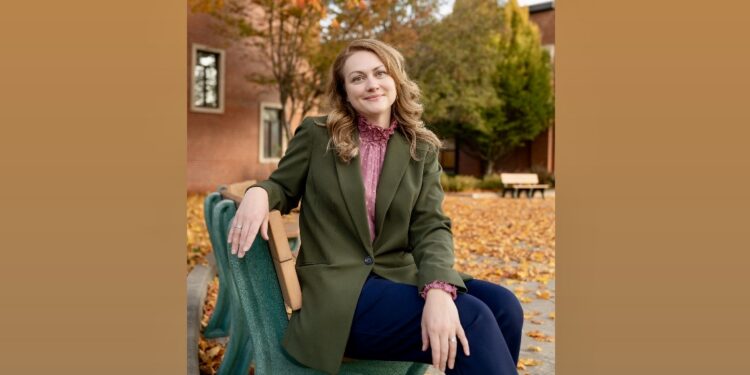LEWISBURG, WV (LOOTPRESS) – As a Regional Assistant Dean with the West Virginia School of Osteopathic Medicine, Hilary Hamric, D.O. works to help medical students develop the knowledge and skills to become effective physicians.
Hamric leads the South East Region of the West Virginia School of Osteopathic Medicine’s Statewide Campus. The statewide campus consists of seven regions across West Virginia where third and fourth-year students work to complete clinical rotations.
“When they first come in, many of them are a little unsure of themselves. They might not know which specialty they want to go into, or they think they know, but it changes. It’s fun to see that progression,” she says of the students. “I love watching them advance from the early stages of clinical medicine to being ready to take the next step into a residency program.”
After growing up in the Summersville area of West Virginia, Hamric spent nearly a decade working with critically ill children in the West Virginia University hospital system as a registered nurse.
“I worked in pediatric intensive care as a charge nurse, a transport nurse and a pediatric trauma coordinator. I learned that taking care of critically ill kids puts everything else into perspective,” she said. “It taught me to view daily problems and worries in a way I might not have been able to without those years.”
In 2020 and 2023, Hamric was the recipient of WVSOM’s Statewide Campus Pride Award, which recognizes her work as a Regional Assistant Dean. She says the knowledge taken from her own experiences is something she works to try to pass on to WVSOM students.
“I was a nontraditional student with a husband and a 2-year-old. It forced me to learn how to look at information in small, digestible bites, to set daily attainable goals that help you meet your larger goal in a comfortable way where you’re not cramming at the end,” she says. That’s something I still carry with me and encourage students to do.”
Ultimately, Hamric says the work is about ensuring that students are prepared for employment in the medical field.
“The goal is to make sure our students are educated and well-rounded. That can mean telling them when they’ve done great, which comes naturally to me. On the flip side, there are conversations when they’re not up to snuff on their exams or you’ve gotten negative feedback from a preceptor,” she says. “Those conversations are more challenging. But I’ve learned how to navigate them, and ultimately, I think my students know it’s out of love. If you don’t correct somebody when they need to improve, you’re not helping them.”










